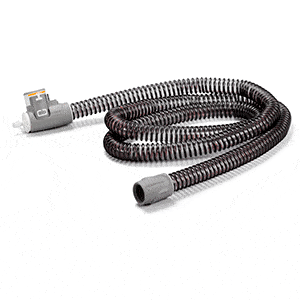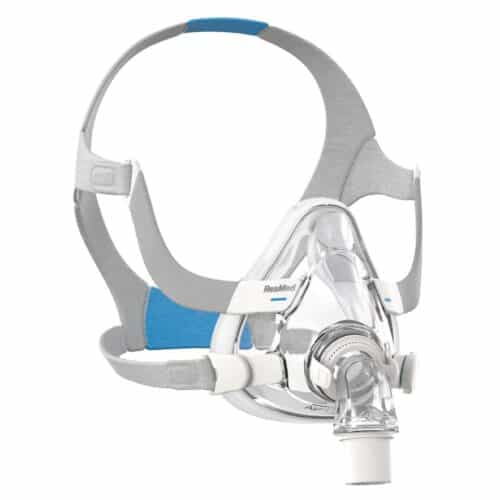Get 10% off your order!
Sign up below for PAP’s Newsletter, and keep an eye on your inbox for a one-time code. Offer not available on sale items.
No one understands the complexities of the supply chain or its centrality to our economy better than America’s increasingly overworked truck drivers. If manufacturers cannot access critical components, they can’t produce the finished goods consumers desire. Similarly, if truckers can’t access the restful sleep needed to operate their rigs safely, they can’t perform the task on which the entire process depends.
But there’s one obvious difference: components will eventually come online, and consumers can often choose a substitute product. Sleep-deprived drivers and the companies that employ them run far greater risks.
According to the Federal Motor Carrier Safety Administration (FMCSA) Large Truck Crash Causation Study, approximately 13% of truck drivers involved in a collision were fatigued at the time. Moreover, the American Sleep Association reports that the trucking industry’s own internal studies indicate as many as 20% of all large rig accidents involved fatigued drivers, causing over 8,000 deaths and nearly a quarter million serious injuries over a nine-year period.
Fortunately, one leading cause of driver fatigue–sleep apnea–can be addressed directly. By diagnosing this common condition by taking a sleep apnea test at home, and treating it with a CPAP machine, employees and their employers can reduce fatigue-related accidents, protecting themselves and others.
Here’s everything you need to know about truck drivers and sleep apnea:

Although the Federal Motor Carrier Safety Administration (FMCSA) does not currently mandate sleep apnea tests for commercial drivers as part of the Department of Transportation (DOT) physical examination of commercial truck drivers, such regulations may be in the offing. FMCSA does, however, enforce a Pulmonary Standard that empowers a medical examiner to require sleep disorder testing, including tests for sleep apnea, in individual situations as part of certification for the operation of a commercial motor vehicle (CMV).
Medical examiners conducting physicals for DOT CMV certification check for abnormalities that may compromise swallowing and breathing. Because such complications may be predictive of or cause sleep disorders, including sleep apnea, these conditions often compel examiners to order sleep testing. Some symptoms of sleep apnea that may prompt such an order include, but are not limited to:
– Hypertension
– Weight
– Body Mass Index (BMI)
– Age
– Receding Chin
– Gender
– Smoking
– Neck circumference
– Diabetes
Indicated by brief but frequent pauses of ten or more seconds in breathing during sleep, sleep apnea is a serious, potentially life-threatening condition with obvious and serious implications for anyone operating a motor vehicle, especially truck drivers.
Frequently undiagnosed and untreated (approximately 80% of people with sleep apnea have yet to be diagnosed), sleep apnea sufferers fight for breath while sleeping, interrupting the deep, recuperative sleep needed to prevent daytime drowsiness and impaired driving. If you are someone driving truck with sleep apnea that hasn’t been diagnosed yet, you may want to get tested, even if you aren’t sure. Untreated sleep apnea may have consequences at some point in your driving career.
Obstructive sleep apnea (OSA), a more serious form of this condition, is characterized by an especially low or even complete absence of airflow, despite the respiratory system’s best efforts to continue breathing.
In addition to sleep apnea’s other impairments, OSA can cause high blood pressure and heart disease, obvious impediments to safe motor vehicle operation and red flags for DOT medical examiners.
Sleep studies (a.k.a., sleep tests, sleep apnea tests, or polysomnographies) are often administered for drivers considered at risk for moderate or severe sleep apnea. Conducted either at home or in a laboratory, these studies allow sleep specialists to identify OSA by measuring apnea severity with the Apnea-Hypopnea Index. A 50% or greater inflow reduction indicates apnea for which treatment and CPAP supplies are recommended or required.
Depending on the degree of a CDL driver’s OSA, treatments may range from weight-loss regimens and over-the-counter medication to, in more severe cases, Continuous Positive Airway Pressure (CPAP). Consisting of a mask and nosepiece, CPAP machines, such as the popular ResMed AirSense 10 deliver constant, steady air pressure during sleep.
All drivers on examiner-established CPAP treatment must maintain compliance by using a CPAP machine for a minimum of four hours a night, 70% of the time. Newly established drivers may obtain certification following one full week of treatment, while drivers already established on CPAP may be recertified on an annual basis by maintaining the minimum compliance noted above, monitoring CPAP therapy and submitting timely (within 30 days) compliance data covering a minimum of 90 days.
While all businesses can benefit from employee sleep apnea programs, trucking companies arguably have the most to gain. By reducing the workers’ compensation claims, downtime and insurance premiums associated with sleep issues, they place themselves in a more competitive position while protecting and retaining key employees. Although cost-savings will vary by company, studies indicate reductions of up to 50% each in accidents and medical costs alone.
If you’d like to learn more about establishing an employee sleep apnea program for your logistics company or any type of business, don’t hesitate to reach out to us. We offer solutions that cover every aspect of the sleep apnea journey, from diagnosis with at-home sleep tests and online CPAP prescriptions from a certified sleep doctor, to low-priced CPAP supplies and ongoing therapy monitoring to improve truckers’ quality of life and their company’s bottom line. You can also always call 866-318-4548, email sleeptight@cpaprx.com or chat with us from the blue “Contact Us” button in the bottom left corner below.


Sign up below for PAP’s Newsletter, and keep an eye on your inbox for a one-time code. Offer not available on sale items.
SUBSCRIBE TO OUR NEWSLETTER Receive exclusive offers & insightful articles to enhance your sleep.
Search by product name, type or brand.
